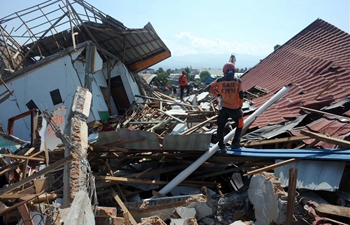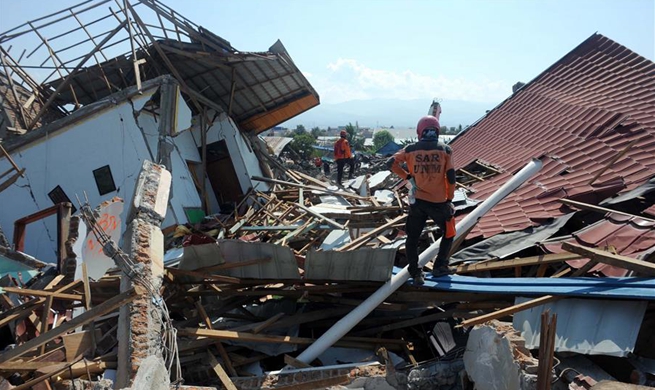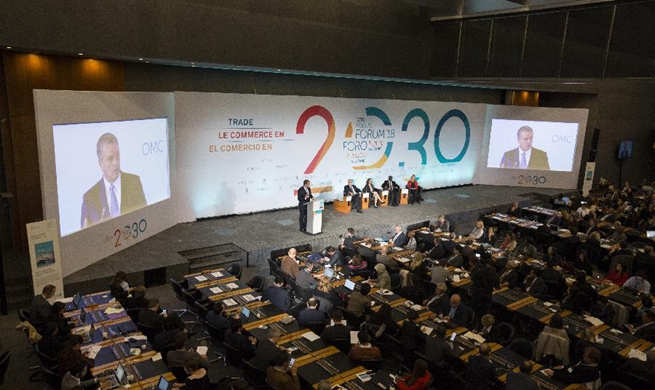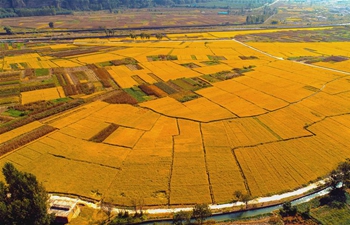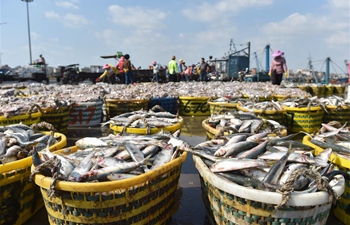BRASILIA, Oct. 3 (Xinhua) -- Brazil's financial institutions are headed toward increased risk and cited politics as the main factor, according to a report issued on Wednesday by Brazil's Central Bank.
"Political risks highlighted by the institutions basically refer to the uncertainty associated with the presidential elections, the candidates' platforms and governing conditions," the Central Bank said in its Financial Stability Report for August.
The elections are to take place on Oct. 7 amid a polarized atmosphere between the far-right Social Liberal Party candidate Jair Bolsonaro and the leftist Fernando Haddad of the Workers' Party.
The banks also see risk triggers related to financial instability on the international stage, according to the report.
The report cites risks to rising interest rates in the United States, along with an escalation of trade tensions.
Among the events the banks said were most relevant are a drop in asset prices, an increase in capital outflows, depreciation in the exchange rate and a credit downgrade, among others.
Nonetheless, the results reinforce market confidence in the ability of the financial system is to absorb shocks.
In the first half of the year, economic activity grew at a slower rate than that in the second half of 2017, according to the report.
Gradual economic recovery, combined with a reduction in inflation and the basic interest rate, allowed for a nominal increase of 1.3 percent in bank lending.
The recovery of credit to individuals is expected to remain throughout the second half of 2018, with continued improvements in economic conditions, according to the report.
In addition, bank lending to families has continued to move forward since the beginning of 2017, it said.




